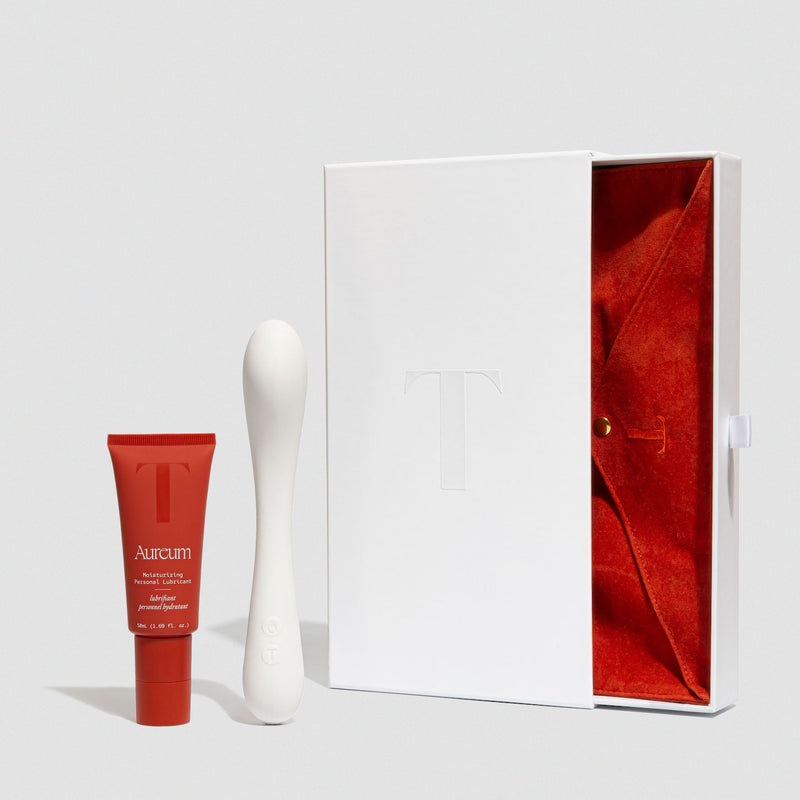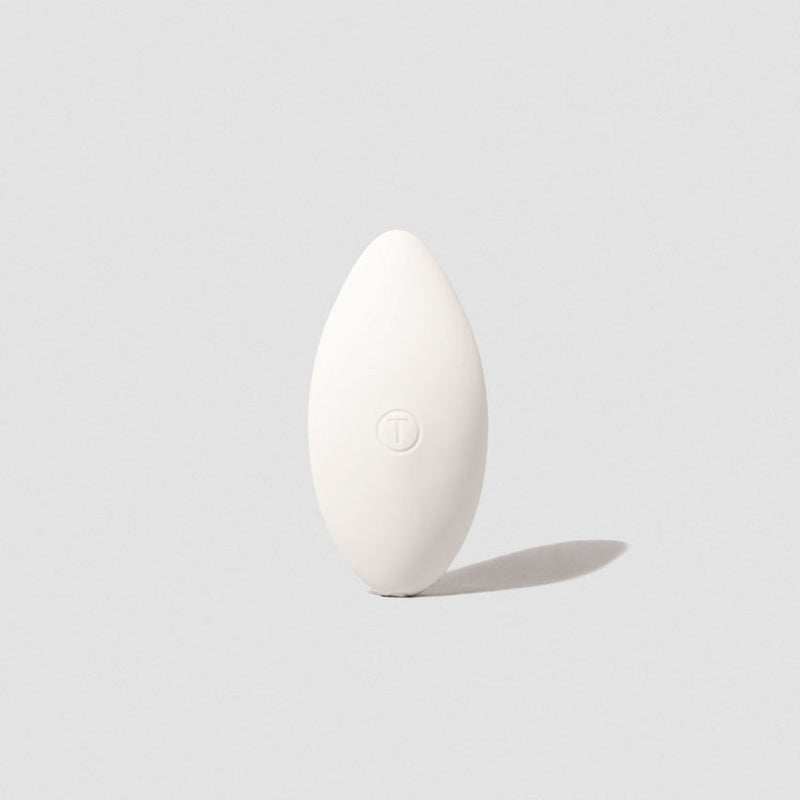The birds and the bees talk you never had
For most of our adult lives, we associate “menopause” with “hot flashes” and leave it at that. If you’re lucky, a close friend or family member may open up to you about her experience. But, far too often, women only begin to understand or confront menopause when they start to experience it themselves. Why? It’s perhaps one of the strongest remaining taboos (sorry, we can’t help it) women face across cultures and around the globe. The good news? Times are changing.
Every day around 6,000 women in the US enter menopause. That’s two million women a year. OB-GYN and menopause care specialist Dr. Barb DePree likes to say that a hundred years ago, a woman was fortunate to live long enough to reach menopause; but today, women will live at least a third of their lives after “The Change”. We sat down with Dr. DePree along with a number of other experts to get our questions around menopause answered. In this guide, we dive into how menopause impacts our sexual health, exploring the biological changes, the physical and emotional side effects, and the treatment options available.
Meet our experts
- Dr. Barb DePree, OB-GYN and Menopause Care Specialist
- Dr. Brittany Klooster, OB-GYN at LAC+USC
- Dr. Sarah Nunnink PhD, MA, Psychologist Specialized in Couples and Sex Therapy
- Heather Fraebel, Physical Therapist Specialized in Pelvic Floor Health
First, let’s cover the basics.
What is menopause?
Menopause is a biological process that is a natural part of aging. It marks the end of your menstrual cycle and reproductive years and is defined as the point in time when you have not had a period for a full 12 months. According to Johns Hopkins, women tend to hit menopause naturally at about the same age as their mothers, which on average is at 51 years old.
But, there’s more to the story. There’s a transitional phase leading up to “The Change” called perimenopause when many women will experience symptoms. While it typically starts in our mid-40s, perimenopause can begin as early as 35 for some women and can last between 4 to 10 years.
How does it start, exactly? Perimenopause is triggered when your ovaries start producing less estrogen, which affects your body in many ways. Dr. Brittany Klooster, an OB-GYN at LAC+USC explains, “Estrogen affects many parts of your body (skin, joints, blood vessels, glands, other hormone levels, etc.), and as a result, women experience different symptoms as their estrogen level drops. While the hallmark symptom of perimenopause and menopause is the hot flash, women face a range of symptoms throughout this life change.”
According to The Mayo Clinic, perimenopause and menopause symptoms include:
- Irregular periods
- Vaginal dryness
- Hot flashes
- Changes in mood
- Anxiety and depression
- Memory and concentration problems
- Chills
- Trouble sleeping
- Night sweats
- Weight gain
- Thinning hair and drying skin
- Loss of breast fullness
Dr. Barb DePree says that the mental and emotional effects of menopause can be some of the most prominent. “One of the major target organs of estrogen is your brain. Some of the consequences will be hot flashes and night sweats, but also brain fog and short term memory problems. It will also impact mood. Many women will experience issues with irritability, anxiety, and just feeling more emotion overall.”
It’s worth noting that menopause may not be the result of aging in some cases. Women who have had their ovaries removed (for example, some breast cancer patients) will immediately begin menopause after surgery. Women who’ve experienced chemotherapy or radiation can also go through menopausal symptoms.
Time for the birds and the bees.
How does menopause affect my sexual health?
Overwhelmingly, we ignore the sexual health side effects of menopause which has serious physical and emotional consequences. While sex is an important part of overall health at any age, the benefits can get even better as we get older (more on this below). But, we’re not going to pretend it’s a walk in the park.
“Genitals have the most concentrated areas of estrogen receptors, so the impact of menopause is likely to have its biggest effect on the vulva, vagina, and lower urinary tract,” explains Dr. DePree. These are not necessarily the first symptoms of menopause, but many women experience a progressive course of dryness and pain that worsens over time.”
What’s happening exactly? “The lack of estrogen in the bloodstream leads to a decrease in blood flow to the vagina and vulva causing decreased vaginal lubrication,” explains Dr. Klooster. “These changes can also cause the vagina to shorten and narrow, all of which can result in painful intercourse along with a host of other vaginal and urinary symptoms.” This mix of vaginal and urinary symptoms is often referred to as the Genitourinary Syndrome of Menopause or GSM.
According to The Mayo Clinic, the signs and symptoms of GSM include:
- Vaginal dryness
- Vaginal burning
- Vaginal discharge
- Genital itching
- Burning with urination
- Urgency with urination
- Frequent urination
- Recurrent urinary tract infections
- Urinary incontinence
- Light bleeding after intercourse
- Discomfort with intercourse
- Decreased vaginal lubrication during sexual activity
- Shortening and tightening of the vaginal canal
If this sounds familiar, you’re not alone. A recent study found that GSM can be clinically detected in up to 90% of post-menopausal women, although only about one-third of women report symptoms. This could suggest that many women still feel too ashamed or embarrassed to discuss these issues openly with providers. Overwhelmingly, experts believe GSM symptoms are under-recognized and under-treated.
So, how do you preserve your sexual health?
Fortunately, there are treatment options available. And the sooner you start, the more effective they’re likely to be. Treatments fall into two broad categories: hormonal and non-hormonal.
Hormonal treatments
Also called Hormone Therapy (HT), this approach involves taking prescription medication containing estrogen, progesterone, or testosterone. HT can be done locally, like applying a topical cream, or systemically, by taking medication orally.
Among the public, there has been concern about the safety of HT. Studies from the early 2000’s seemed to show that HT increased the risk of breast cancer, heart disease, and stroke. However, more comprehensive research has since found that there’s more to the story.
The medical consensus today, led in part by the North American Menopause Society, holds that HT can be a safe and effective treatment for women with the right health history, especially if women start treatment before age 60.
If you’re interested in hormonal treatments, start by talking to your doctor. He or she will not only help navigate things like medication dosage and type, but can also cover any potential health risks and side effects. Clinicians increasingly recommend pairing HT with non-hormonal lifestyle treatments, so it’s worth paying attention to those as well.
Non-hormonal treatments
Whether you’re interested in HT or not, non-hormonal options are an important part of managing the sexual health side effects of menopause. “For many women, non-hormonal methods are the preferred treatment for vaginal dryness during menopause,” says Dr. Klooster. “As an example, continuing sexual activity can prevent the changes in size and shape of the vagina, even in the absence of estrogen therapy.” In fact, according to The Mayo Clinic, regular sexual activity is one of the most effective, non-hormonal ways to treat and prevent GSM symptoms from peri- to post-menopause. It’s the old “use it or lose it” idea – one of the best ways to keep blood flow to your vagina is simply to stimulate blood flow.
This can be easier said than done if you’re already experiencing pain and sensitivity. So, where do you start? The answers may surprise you.
For one, consider physical therapy. “Even after one painful/uncomfortable sexual experience due to dryness or atrophy, our minds and bodies react,” says Heather Fraebel, a Physical Therapist who specializes in women’s pelvic floor health. “Your body, namely your pelvic floor, may begin to physically tighten up at the initiation of a sexual experience due to its previously uncomfortable experience. This can result in pelvic floor hypertonicity, or tightness of the pelvic floor muscles, that will make penetration even more uncomfortable and challenging,” Fraebel explains. Physical therapists like Fraebel help many women overcome GSM symptoms and it doesn’t take long to see results. “Physical therapy can help you loosen your pelvic floor, create a plan to reverse a negative association (both physical and mental) with intimacy, improve natural lubrication, and even help boost estrogen,” she says.
Second, invest in the right tools. To help with many of these symptoms and get back to a more regular sex life, clinicians and therapists alike recommend peri- to post-menopausal women commit to a sexual wellness routine with the help of a personal massager and moisturizing lubricant. With regular use, these tools can make sexual activity more comfortable. “A massager isn’t a ‘sex toy,’ however playful we might be with it,” says Dr. DePree. “It’s like a hearing aid (‘audio toy’), a cane (‘mobility toy’), or reading glasses (‘vision toy’) – devices that help us mitigate the effects of growing older.” Using one regularly – about three times a week for 10 minutes a time – can bring blood flow back to your vaginal muscles and reverse atrophy.
It’s worth noting that for many women, kicking off a sexual wellness routine may not feel natural at first. It goes without saying that these ‘tools' can have crude and hyper-sexual associations, so shopping for the right products might be uncomfortable and overwhelming at times. Here’s a quick guide to help.
Finding the right tools for your lady parts
First, let’s start with massagers. We asked our experts what features are best suited for menopausal women, here’s what they recommend:
- High quality materials – aim for medical grade silicone. This material provides a smooth, comfortable experience and is the most hygenic. While massagers made from plastic or rubber are cheaper, they are porous and can trap bacteria – increasing the risk of yeast infections and UTIs.
- Internal vs. external – you may want to start with an external massager that stimulates the clitoris. Since most women orgasm from clitoral stimulation, this can be a good way to get comfortable with massagers. However, you’ll need an internal, penetrative massager to address vaginal atrophy. This will directly stimulate the muscles and skin that need blood flow. Look for an internal massager with a narrow head so that you don’t have to worry about comfort or fit.
- Strength – many menopausal women need stronger stimulation. You’ll want a massager with various options for strength and speed to help you find what works best for your body.
- Flexibility – if you have issues with grip or dexterity, you’ll want to use a massager that’s easy to handle. Look for products with a wide, easy to grip base and a long, flexible neck. And make sure they are lightweight.
- Heating – some massagers have a heating option that you can turn on and off. This can increase comfort as well as stimulate more blood flow.
Now, let’s talk lubricant – an important co-star. Lubricant will reduce friction and increase comfort during sex or self-play with your massager, while helping to protect delicate vaginal skin. Most lubricant that you find at the drugstore, however, can actually work against you. It’s important to use lubricant with high quality ingredients, or you may end up with even more dryness and pain.
If you look at the ingredients in common drugstore brands, you may find they contain things like propylene glycol or methylisothiazolinone, which are known skin irritants. Instead, look for solutions that include ingredients that are healing for your skin. Here’s what our experts recommend:
- Aloe vera – a healing agent that helps speed up recovery from tissue damage and soothe pain
- Anti-inflammatory ingredients - helps reduce pain and inflammation
- Vitamin E - has moisturizing and healing benefits. Vitamin E is also an anti-inflammatory and can help calm tissue
- Antioxidant ingredients - can prevent tissue damage. On a cellular level, antioxidants fight off free radicals (the molecular byproduct of daily stresses on the body that can damage DNA if left to their own devices). Antioxidants counter free radicals and prevent long term damage.
- Free of glycerin and parabens - these ingredients may introduce health issues, like yeast infections or hormonal disruptions
- pH balanced - meaning, it works with the natural pH of your body to keep yeast infections away
- FDA cleared - lubricant is classified as a medical device and its development is overseen by the FDA. Make sure your lubricant has been “FDA Cleared” to ensure it’s safe.
At Tabu, we’ve designed solutions guided by experts and in partnership with women like you. To learn more about our sexual wellness kit for menopausal women, visit our product page.
What are the benefits of sex during menopause?
We’ve covered how sex can help with GSM symptoms like vaginal atrophy and dryness. And while we’ve been saying sex is an important part of overall health, many women don’t recognize just how important it can be.
Studies have shown that regular sexual activity can:
- Reduce stress
- Lower blood pressure
- Improve sleep
- Lower risk of health disease
- Reduce incontinence
- Strengthen vaginal muscles
- Improve self-lubrication during sex
- Improve body confidence
There’s also evidence that sexual activity can address some other sex-related issues of menopause. For example, many menopausal women report a loss of sensitivity, needing more stimulation for arousal or orgasm. In fact, during perimenopause, the decreasing estrogen can cause your clitoris to shrink. The same “use it or lose it” adage applies here, and regular stimulation can help bring back sensation.
Additionally, some menopausal women notice a decrease in their sex drive. While some women are okay with this, others miss this part of themselves. Regardless, a decreased libido is perfectly normal and in large part due to decreased hormone levels. Regular use of a massager, however, can increase your sex drive. This effect may be because women become better acquainted with their bodies and are more equipped to direct their partners during sex. Some experts also believe self-play temporarily increases testosterone, which in turn raises libido.
What are the emotional side effects of menopause and sex?
In talking to experts, we learned early on that these issues weren’t just physical for women – they were also deeply emotional.
In fact, changes in mood, anxiety, and depression affect up to 1 in 4 women in perimenopause. As with other menopause symptoms, this comes back to hormones. The same hormones that control your menstrual cycle also affect your serotonin, a chemical in your brain that promotes feelings of happiness. As your estrogen declines, so can your serotonin, bringing on feelings of irritability and sadness. What's more, this likely contributes to the fact that suicide rates are highest between ages 45 - 59.
These same mood changes can also affect your relationship with your partner. Dr. Sarah Nunnink PhD, MA, who specializes in couples’ and sex therapy explains, “mood changes can contribute to disconnection and distance in the relationship (i.e. a partner avoiding the other due to not wanting to be snapped at). The partner experiencing these menopause-related mood symptoms may feel like she is ‘losing touch’ with who she is.”
Then, layer on sexual health challenges and its impact on physical intimacy. In any relationship, a troubled sex life can have an outsized impact on partners’ happiness. Researchers have found that, while happy partners attribute only 15% to 20% of their happiness to a good sex life, partners in an unhappy relationship ascribe 50% to 75% of their distress to sexual problems.
With all these changes, it’s common for relationships to suffer. “When a partner interprets their partner's vaginal dryness as a sign that their partner is not attracted to them or aroused by them any longer,” says Dr. Nunnink, “such insecurity can create feedback loops that amplify distress and mis-interpretation in the couple and further feed insecurity.”
To address these issues in your relationship, it all starts with communication. “The most important thing a couple can do is have vulnerable conversations that get to the emotional heart of the matter,” Dr. Nunnink explains. “In order to be able to be vulnerable with a partner, it has to be emotionally safe to share deeper feelings that go below the level of surface content. Working on creating an atmosphere of emotional security and safety will go a long way.”
Partners can choose to work together through these topics, or they may try therapy. “Therapy can help partners explore their experiences, get underneath the level of defenses, and begin to create a secure environment where vulnerability and openness is more likely to grow,” Dr. Nunnink says.
Subscribe for more from Tabu
At Tabu, we believe that sexual wellness is an important part of our overall health. And since women today will likely live a third of our lives after menopause, it’s worth finding solutions that work as we age.
We hope this guide helped to answer some of your questions. Subscribe to our newsletter for more expert-led advice straight to your inbox.
References
- https://www.hopkinsmedicine.org/health/conditions-and-diseases/introduction-to-menopause
- https://my.clevelandclinic.org/health/diseases/15224-menopause-perimenopause-and-postmenopause
- https://www.mayoclinic.org/diseases-conditions/menopause/symptoms-causes/syc-20353397
- https://www.mayoclinic.org/diseases-conditions/vaginal-atrophy/symptoms-causes/syc-20352288
- https://www.contemporaryobgyn.net/view/genitourinary-syndrome-menopause-underdiagnosed-and-undertreated
- https://www.ncbi.nlm.nih.gov/pmc/articles/PMC6074805/
- https://www.menopause.org/docs/default-source/2017/nams-2017-hormone-therapy-position-statement.pdf
- https://www.ohsu.edu/womens-health/benefits-healthy-sex-life
- https://www.self.com/story/13-reasons-every-woman-should-masturbate-besides-the-obvious
- https://www.menopause.org/for-women/sexual-health-menopause-online/causes-of-sexual-problems/depression-mood-swings-anxiety
- https://www.hopkinsmedicine.org/health/wellness-and-prevention/can-menopause-cause-depression
- https://www.cdc.gov/nchs/products/databriefs/db362.htm#section_2
- https://drrebeccajorgensen.com/wp-content/uploads/2019/09/Sexual-Desire-Descrepancy.pdf







